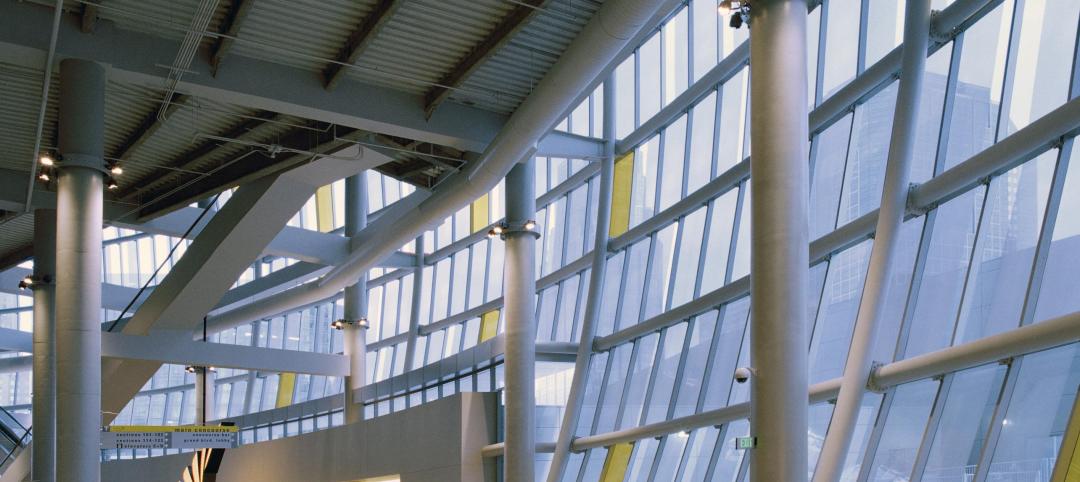At a recent meeting, the Concrete Reinforcing Steel Institute (CRSI) Board of Directors urged all CRSI producer members to revert to an inch-pound bar marking system for all sizes and grades of deformed reinforcing steel products. CRSI members produce more than 90% of domestic reinforcing steel.
The intention of this resolution is for all new rollings of reinforcing steel products to be marked with inch-pound bar markings no later than January 1st, 2014. Providing a 25-month phase in period should permit producer members sufficient time to re-tool finish roll inventory to the inch-pound marking system as rolls need to be replaced, significantly reducing or eliminating the need to unnecessarily cut new rolls to meet the resolution.
As the ASTM specifications for reinforcing steel products permit reinforcing bars to be marked in either soft metric, or inch-pound markings, existing inventory of soft metric bars can continue to be sold alongside inch-pound marked bars during and after the January 1st, 2014, phase-in target.
The intention of this resolution is to reduce confusion and the chance of errors or delays from the construction supply chain. CRSI members are strongly encouraged to revert to the inch-pound marking system for steel reinforcing bars as soon as practical to minimize any additional confusion to the supply chain of steel reinforcing bars.
This change is the result of several actions. The Federal Highway Administration no longer mandates metrification of federally funded road and bridge construction projects and all state Departments of Transportation no longer require materials to be specified and sourced in metric sizes/quantities. Additionally, a large majority of the non-governmental construction community never adopted metric measurements in their plans and specifications. The American Concrete Institute (ACI), through their Technical Activities Committee (TAC), has strongly encouraged CRSI members to mark reinforcing bars with traditional inch-pound size designations. ACI is the standards body within the United States responsible for developing the concrete building code. The concrete building code and other ACI documents reference the inch-pound size as the primary designation.
“It made logical sense for the industry to begin the process to move away from soft metric markings,” said Robert Risser, CRSI President. “None of our private or government customers are using metric plans or specifications any longer. The phase-in period will allow industry members to make the change over at minimal additional expense. CRSI is now in the process of making the appropriate changes to our manuals and literature.” BD+C
Related Stories
Museums | Jun 6, 2023
New wing of Natural History Museums of Los Angeles to be a destination and portal
NHM Commons, a new wing and community hub under construction at The Natural History Museums (NHM) of Los Angeles County, was designed to be both a destination and a portal into the building and to the surrounding grounds.
Performing Arts Centers | Jun 6, 2023
Mumbai, India’s new Nita Mukesh Ambani Cultural Centre has three performing arts venues
In Mumbai, India, the recently completed Nita Mukesh Ambani Cultural Centre (NMACC) will showcase music, theater, and fine arts from India and from across the globe. Atlanta’s TVS Design served as the principal architect and interior designer of both the cultural center and the larger, adjacent Jio World Centre.
Architects | Jun 6, 2023
Taking storytelling to a new level in building design, with Gensler's Bob Weis and Andy Cohen
Bob Weis, formerly the head of Disney Imagineering, was recently hired by Gensler as its Global Immersive Experience Design Leader. He joins the firm's co-CEO Andy Cohen to discuss how Gensler will focus on storytelling to connect people to its projects.
Codes and Standards | Jun 6, 2023
California’s new power grid modernization plan furthers ambitious climate goals
California’s new $7.3 billion grid modernization plan is a crucial step in furthering its ambitious climate goals. The board of governors for the California Independent System Operator (CAISO), the state’s grid operator, recently approved a strategy to build thousands of miles of new high-voltage transmission lines.
Mixed-Use | Jun 6, 2023
Public-private partnerships crucial to central business district revitalization
Central Business Districts are under pressure to keep themselves relevant as they face competition from new, vibrant mixed-use neighborhoods emerging across the world’s largest cities.
Multifamily Housing | Jun 6, 2023
Minnesota expected to adopt building code that would cut energy use by 80%
Minnesota Gov. Tim Walz is expected to soon sign a bill that would change the state’s commercial building code so that new structures would use 80% less energy when compared to a 2004 baseline standard. The legislation aims for full implementation of the new code by 2036.
Healthcare Facilities | Jun 5, 2023
Modernizing mental health care in emergency departments: Improving patient outcomes
In today’s mental health crisis, there is a widespread shortage of beds to handle certain populations. Patients may languish in the ED for hours or days before they can be linked to an appropriate inpatient program.
Student Housing | Jun 5, 2023
The power of student engagement: How on-campus student housing can increase enrollment
Studies have confirmed that students are more likely to graduate when they live on campus, particularly when the on-campus experience encourages student learning and engagement, writes Design Collaborative's Nathan Woods, AIA.
Engineers | Jun 5, 2023
How to properly assess structural wind damage
Properly assessing wind damage can identify vulnerabilities in a building's design or construction, which could lead to future damage or loss, writes Matt Wagner, SE, Principal and Managing Director with Walter P Moore.
Cladding and Facade Systems | Jun 5, 2023
27 important questions about façade leakage
Walter P Moore’s Darek Brandt discusses the key questions building owners and property managers should be asking to determine the health of their building's façade.

















